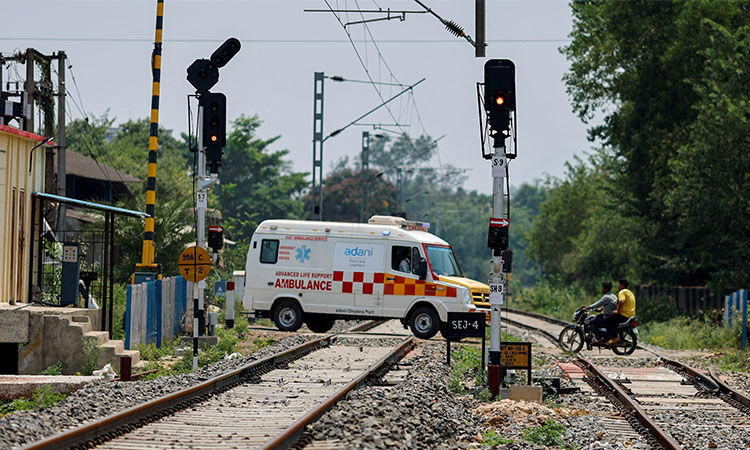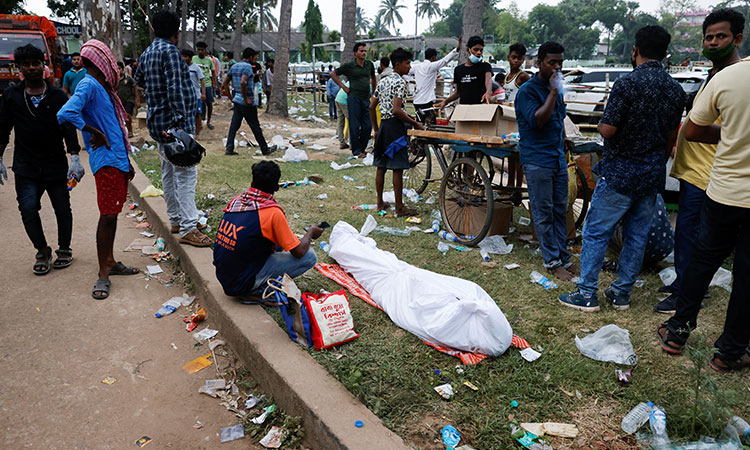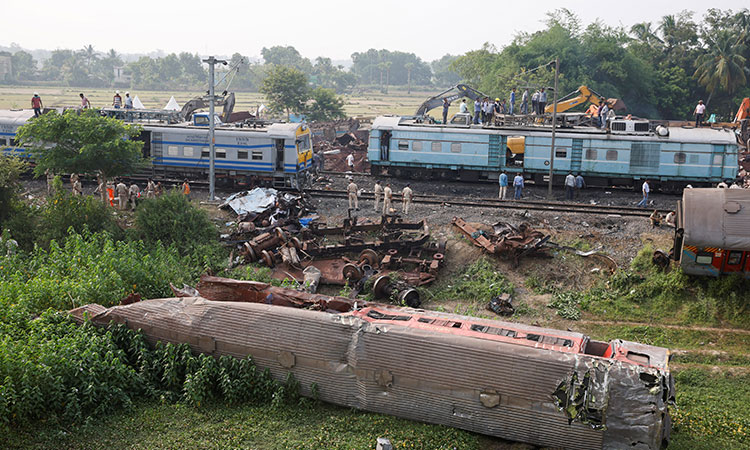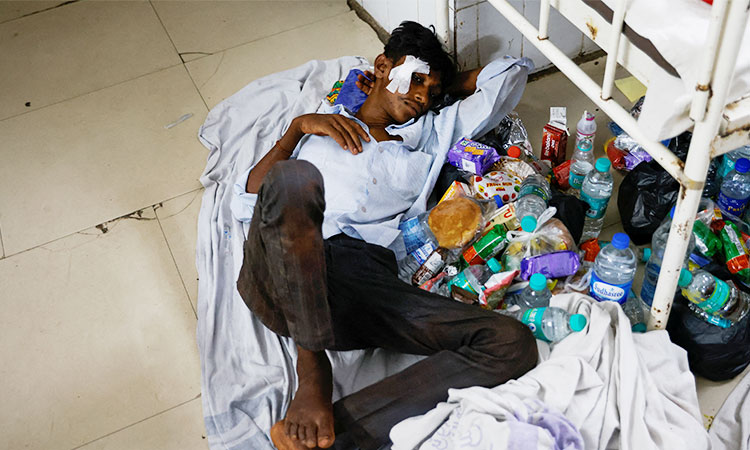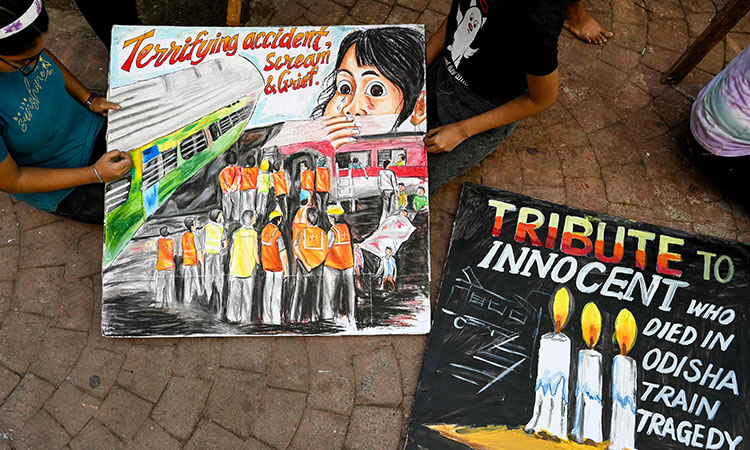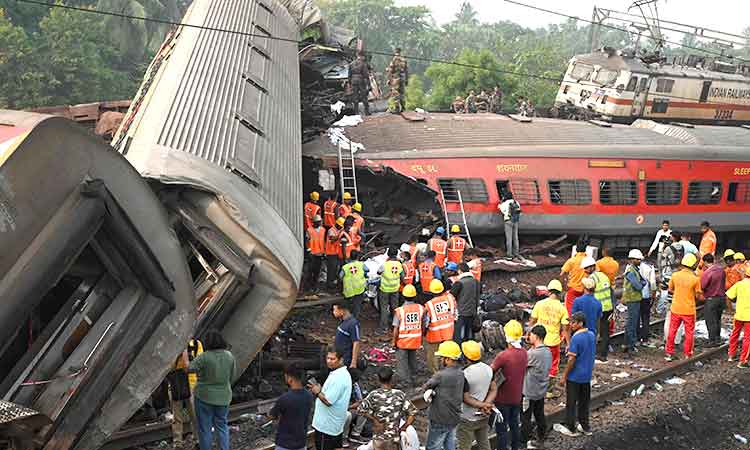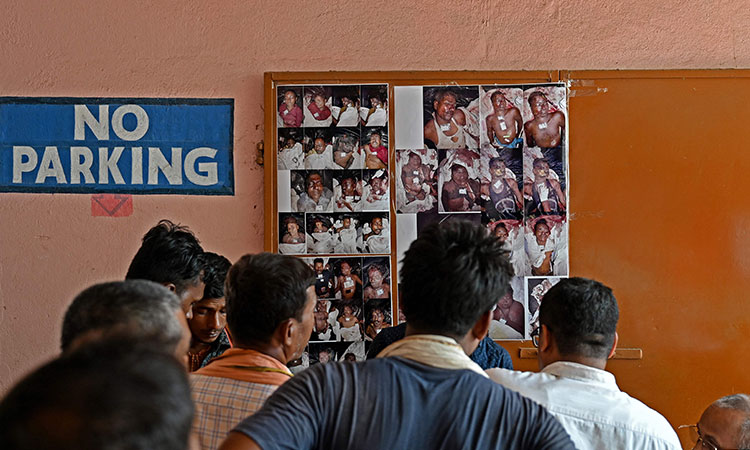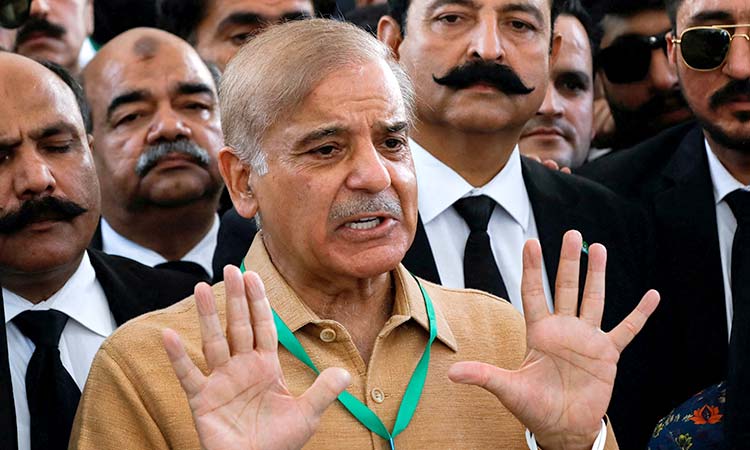Signalling system error led to train crash, says railway minister

This aerial view shows damaged carriages at the accident site of a three-train collision near Balasore, Odisha, on Sunday. AFP
The derailment in eastern India that killed 275 people and injured hundreds was caused by an error in the electronic signalling system that led a train to wrongly change tracks and crash into a freight train, railway minister and officials said on Sunday.
’’Who has done it and what is the reason will come out of an investigation,” Railway Minister Ashwini Vaishnaw said in an interview with New Delhi Television network.
Jaya Verma Sinha, a senior railway official, said the preliminary investigations revealed that a signal was given to the high-speed Coromandel Express to run on the main track line, but the signal later changed, and the train instead entered an adjacent loop line where it rammed into a freight loaded with iron ore.
Verma said the root cause of the crash was related to an error in the electronic signalling system. She said a detailed investigation will reveal whether the error was human or technical.
The electronic interlocking system is a safety mechanism designed to prevent conflicting movements between trains. It also monitors the status of signals that tell drivers how close they are to a next train, how fast they can go and the presence of stationary trains on the track.
"The system is 99.9% error free. But 0.1% chances are always there for an error,” Verma said. To a question whether the crash could be a case of sabotage, she said "nothing is ruled out.”
The explanation came as authorities worked to clear the mangled wreckage of the two passenger trains that derailed Friday night in Balasore district of eastern Odisha state, in one of the country’s deadliest rail accidents in decades.
Preliminary investigations revealed that a signal was given to the high-speed Coromandel Express to enter the main track line, but the signal was later taken off, and the train instead entered an adjacent loop line where it rammed into a goods train. The collision flipped Coromandel Express’s coaches onto another track, causing the incoming Yesvantpur-Howrah Express from the opposite side to derail, triggering a three-train collision. The passenger trains were carrying 2,296 people total.
Trains that carry goods are often parked on an adjacent loop line on the side so the main line is clear for a passing train.
On Sunday, a few shattered carriages, mangled and overturned, were the only remnants of the tragedy. Railway workers toiled under the sun’s glare to lay down blocks of cement to fix the broken tracks. A crew with excavators was removing mud and the debris to clear the crash site.
At one of the hospitals nearly 15 kilometres from the site, survivors spoke of the horror of the moment of the crash.
Pantry worker Inder Mahato could not remember the exact sequence of events, but said he heard a loud bang when the Coromandel Express crashed into the freight. The impact caused Mahato, who was in the bathroom, to briefly lose consciousness.
Moments later when he opened his eyes, he saw through the door that was forced open people writhing in pain, many of them already dead. Others were frantically trying to get out from the twisted wreckage of his rail car.
For hours, Mahato, 37, remained stuck in the train’s bathroom, before rescuers scaled up the wreckage and pulled him out.
"God saved me,” he said, lying on the hospital bed while recuperating from a hairline fracture in his sternum. "I am very lucky I am alive.”
Mahato’s friends weren’t so lucky. Four of them died in the crash, he said.
Meanwhile, many desperate relatives were struggling to identify the bodies of their loved ones because of the gruesomeness of the injuries. Few others were searching hospitals to check whether their relatives were alive.
In the same hospital where Mahato was recovering from his injuries, Bulti Khatun roamed outside the premises in a dazed state, holding an identity card of her husband who was onboard the Coromandel Express and traveling to southern Chennai city.
Khatun said she visited the morgue and other hospitals to look for him, but was unable to find him. "I am so helpless,” she said, sobbing.
Associated Press